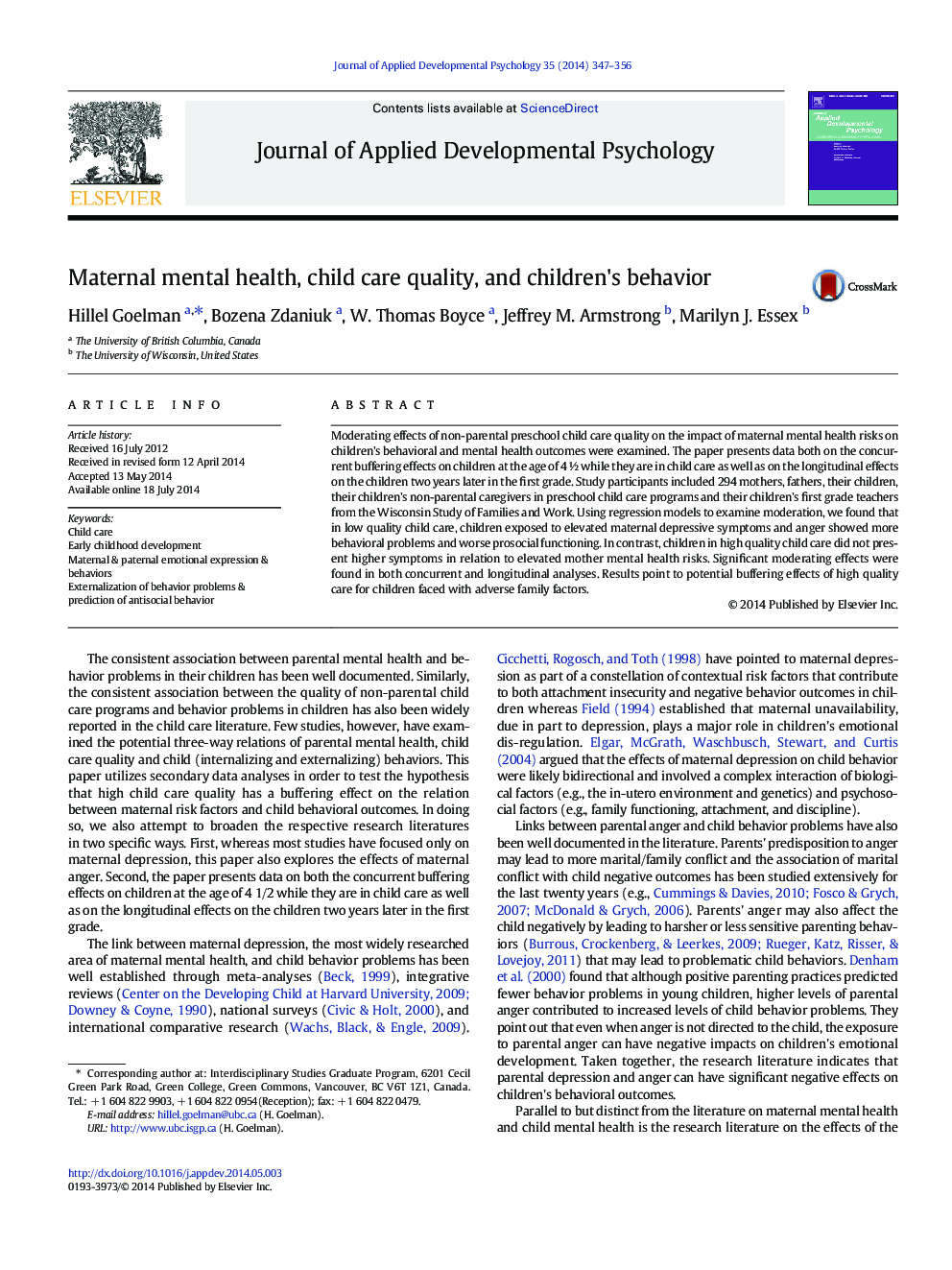| Article ID | Journal | Published Year | Pages | File Type |
|---|---|---|---|---|
| 359641 | Journal of Applied Developmental Psychology | 2014 | 10 Pages |
•Preschool age children have been found to be susceptible to maternal depression and anger.•High quality child care buffers the effects of maternal depression and anger on their children.•The buffering effect was sustained to first grade.
Moderating effects of non-parental preschool child care quality on the impact of maternal mental health risks on children's behavioral and mental health outcomes were examined. The paper presents data both on the concurrent buffering effects on children at the age of 4 ½ while they are in child care as well as on the longitudinal effects on the children two years later in the first grade. Study participants included 294 mothers, fathers, their children, their children's non-parental caregivers in preschool child care programs and their children's first grade teachers from the Wisconsin Study of Families and Work. Using regression models to examine moderation, we found that in low quality child care, children exposed to elevated maternal depressive symptoms and anger showed more behavioral problems and worse prosocial functioning. In contrast, children in high quality child care did not present higher symptoms in relation to elevated mother mental health risks. Significant moderating effects were found in both concurrent and longitudinal analyses. Results point to potential buffering effects of high quality care for children faced with adverse family factors.
